Johnson leaves Downing Street for palacepublished at 10:52 GMT 13 December 2019
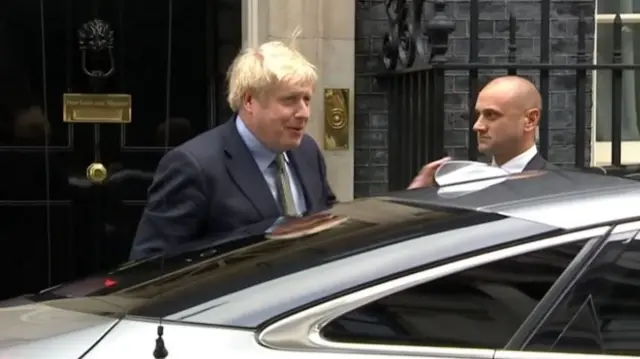
The Conservatives have 365 MPs, Labour 203, the SNP 48, Liberal Democrats 11 and the DUP eight
Sinn Fein have seven MPs, Plaid Cymru four, the SDLP have two; and the Green Party and Alliance Party one each
Boris Johnson's party has the largest Tory majority since 1987
He says he will repay the trust of voters and lead a "people's government"
He has been to see the Queen and speaking outside No 10 urged the UK to "unite" and "everyone to find closure and to let the healing begin"
Jeremy Corbyn says he did "everything he could" to win and will stand down as leader early next year
Jo Swinson loses her seat, stands down as Liberal Democrat leader, and urges her party to "regroup"
Nicola Sturgeon says the PM has "no right" to block another Scottish independence referendum
There will be a minor reshuffle on Monday and the Brexit bill will go before MPs next Friday
Chris Lansdown and Dulcie Lee

The Jewish Labour Movement said Labour's election failure "lies squarely with the party's leadership".
"Because of the public rejection of Jeremy Corbyn as Prime Minister, the confused position on Brexit, or its total failure to tackle anti-Jewish racism, the Party must truly listen," a statement says.
"We are distraught that our courageous Parliamentary Chair, Ruth Smeeth, was not re-elected.
"Ruth has represented the best of Labour over these past few years, unafraid and determined to hold the Party's leadership accountable for their failure to tackle antisemitism..."
 Chris Morris
Chris Morris
BBC Reality Check
The Prime Minister now has a lot of promises to keep and I think we now know, pretty much for certain, that we will leave the EU on 31 January.
That's going to be symbolically, legally, a really important day.
But after that, there are further promises. Number one - to negotiate a trade deal with the EU in pretty much record time before the end of next year when a post-Brexit transition period runs out.
That is going to be difficult to do if the PM also wants the freedom to diverge from the EU rules and regulations that we currently follow.
Promise number two, he's said that he won't extend that post-Brexit transition period, so if a trade deal isn't ready in time, what does he do?
Does he break that promise to extend or does he leave with a new version of no-deal?
So there's a lot of hurdles for him beyond 31 January.
At the moment clearly the focus is on that and it will be an important day - legally we will have left.
But the whole of the future relationship will still be up for grabs.
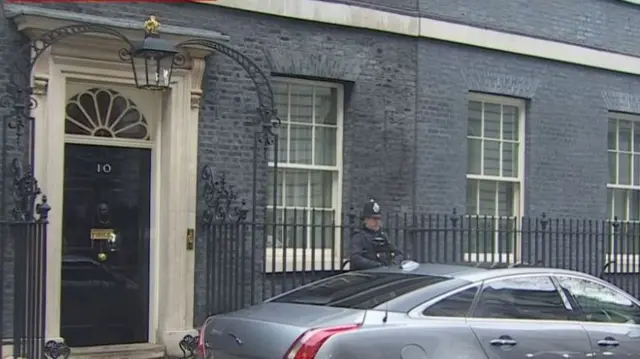
Boris Johnson will leave Downing Street for Buckingham Palace shortly, where he will have an audience with the Queen following his decisive election victory.
Our correspondent travelled across the UK during the election.
 Danny Savage
Danny Savage
North of England correspondent
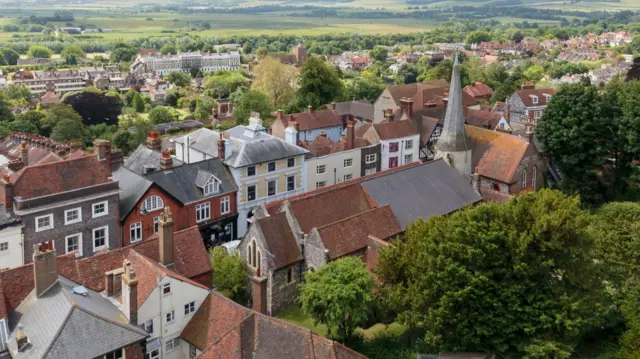 Image source, Getty Images
Image source, Getty ImagesBrexit was not the only issue raised during the campaign. The distances patients have to travel to hospital was a re-occurring theme. What would be your round trip to hospital if you had cancer or needed heart treatment or even A&E? We found that 120 miles wasn’t unusual. Think about that if you live in a city.
Poverty and food banks came up too. There are a lot of people struggling in Britain and many of them feel that no party will make a difference to them.
We went to Brighton for the Greens. How many elections are we away from environmental matters being at the centre and front of a campaign?
Lewes in East Sussex was a Lib Dem target but voters there said they didn’t like the u-turn the party was making over Brexit. They said it was undemocratic.
The extent of the potential Tory victory was rammed home on visits in the final straight to Stoke and Bolsover. Traditional, solid Labour territory where we struggled to find Labour voters. You couldn’t move for Tory support. The die was cast.
Our election tour of Britain underlined one key observation: the noise on social media has little resemblance to the real world. So many people are not on twitter or Facebook. They don’t care what people on there think. Twitter is an irrelevance.
People vote due to their circumstances and by watching the main players on the TV. They vote mainly for the leaders and not their local candidate.
Our correspondent travelled across the UK during the election.
 Danny Savage
Danny Savage
North of England correspondent
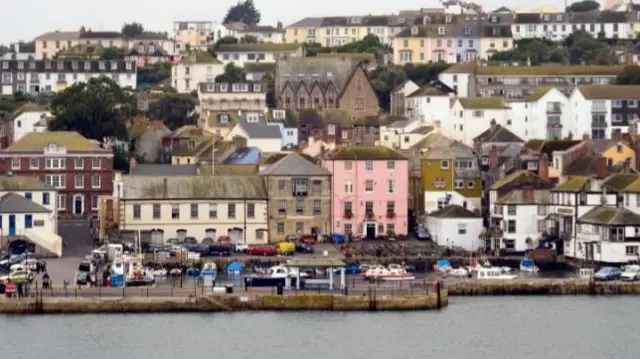 Image source, Getty Images
Image source, Getty ImagesIn Barrow-in-Furness - which had been Labour for decades - there was disgust for the party. In a town that builds nuclear submarines for the Royal Navy, the idea of a Labour leader who says he would never use nuclear weapons was going down badly. No surprise then that Barrow went blue.
Labour still had much of the young vote. Students in Falmouth were fans but here was an illustration that such momentum couldn’t get the party over the line.
In Scotland, the independence factor came through. Lots of support for the SNP and it has showed. We went to NE Fife, the most marginal of marginals in 2017. People told us the Lib Dems were trying hard and there was talk of tactical voting by pro-unionists to keep the SNP out. We put that down as a Lib Dem gain and so it was.
In Edinburgh South we met a man who was off to the bookies to bet that the seat would stay Labour. A popular local candidate was his reasoning. He will be in to collect his winnings today.
South Wales underlined the anger towards Labour in a heartland for the party. Brexit was the issue. And this was a Brexit election - it’s why it happened and it was the biggest influence on the vote.
 Danny Savage
Danny Savage
North of England correspondent
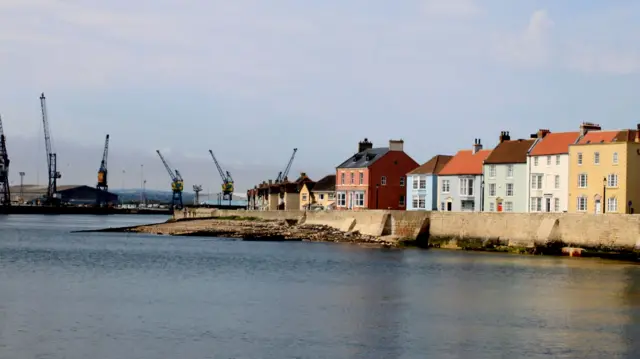 Image source, Getty Images
Image source, Getty ImagesFor the six weeks of the general election campaign, I travelled around the UK talking to voters in numerous constituencies for Radio 4. We tried to mix up the type of constituencies - not just marginal - but safe seats, target seats and different voter demographics.
The first was in Hartlepool, where it felt like the Brexit party could potentially gain a seat. But six weeks on, the Brexit Party threat had vanished.
The Conservative vote felt solid from the outset, but a day at the races at Wolverhampton brought home the extent of pro Tory feeling. Here we found lifelong Labour supporters who were turning to the Tories. The reason? Jeremy Corbyn.
On the streets of Britain, Mr Corbyn proved to be the most divisive figure in politics. Yes, we heard from fans, some who described him as a breath of fresh air, but they were in the minority.
In short, the electorate disliked Jeremy Corbyn to such a level that he forced many of them to turn their back on the party they had always voted for. If I had a pound for every time somebody expressed their dislike for him, I would have lots of pounds.
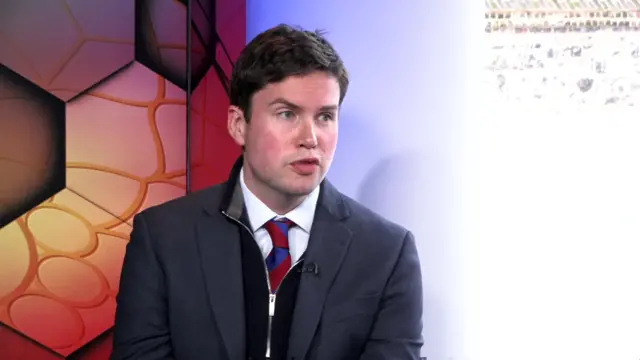
Dan Carden, the Labour shadow international development secretary, says he does not blame Jeremy Corbyn for the "heartbreaking" result suffered by the Labour party.
He says "it shows that Brexit divisions across the country have not been solved, and we have paid a price for that" in working class Labour heartlands.
Challenged on whether the party is blaming Brexit as the sole cause of its defeat, he says the party will look at itself and reflect on how it moves forward.
He adds: "I don't think we lost Labour heartlands because we were promising to re-nationalise the NHS, or invest in our communities or promising a £10 an hour minimum wage, I think we lost trust over Brexit."
He admits that Jeremy Corbyn's leadership was raised as a concern by voters on doorsteps, but he says when challenged they couldn't say why they wouldn't vote for him.
 BBC Radio 5 Live
BBC Radio 5 Live
BBC Radio 5 Live reporter Rowan Bridge is speaking to people in a cafe in Belfast city centre.
The Democratic Unionist Party (DUP) suffered a bruising night of general election results, losing two MPs including its Westminster leader Nigel Dodds.
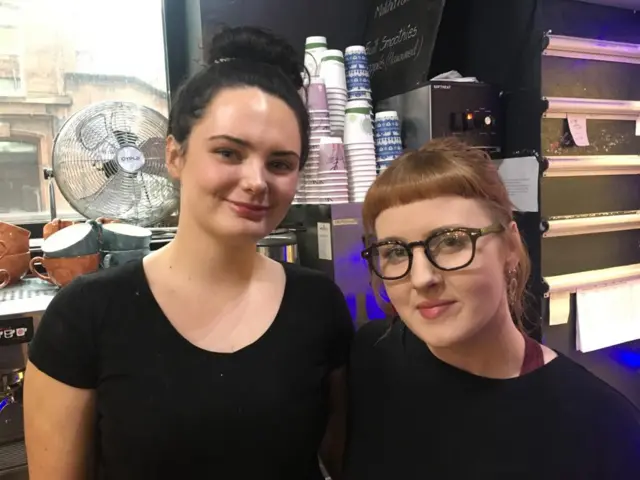
Zoe and Rebecca work in the cafe.
Zoe voted SDLP and she said "talking to my friends and people who were voting, there was a lot of tactical voting to push the DUP out because we're not getting represented in Westminster".
She said she hopes this is a turning point: "In the past there hasn't really been much representation for us in Northern Ireland - we've only just recently got our [same-sex] marriage and abortion rights passed which has been absolutely brilliant but we're definitely still pushed to the side and not considered enough in Westminster."
Rebecca voted for Nigel Dodds who lost his seat.
“I am a wee bit sad, I thought he would [win] because everyone I know voted for him where I live... I am not too sure now, hopefully we’ll be alright."
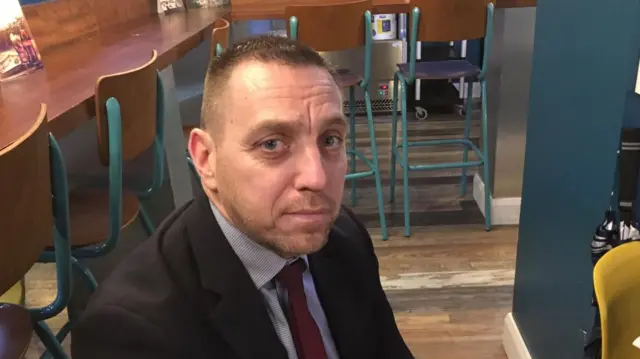
Padraig is a Sinn Féin supporter – he voted in West Belfast.
“I come from a family of Sinn Féin voters," he said, "but I am also very pro-Remain. I think in this election the single biggest issue was Brexit and I think that’s reflected in the votes in Belfast and across the north.
“It’s the first time I recall we’ve had a minority of unionist MPs being elected… I think that’s significant, it’s historic – it will be a very interesting time ahead."
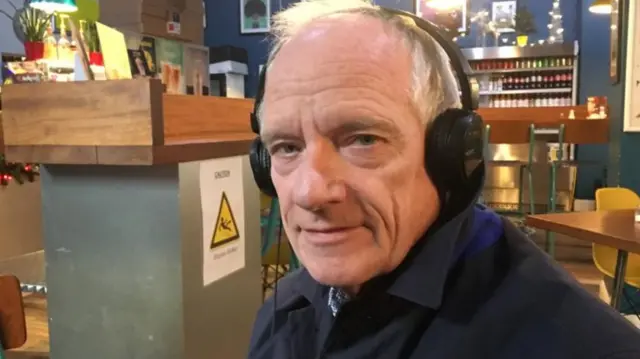
Stephen lives in East Belfast and voted Alliance - "because they're not the DUP and they're not Sinn Féin... any educated liberal person is effectively disenfranchised because all people want to vote about is the union and there are many other important things.
"I am just delighted that we will not have a hung Parliament and at least we can progress with things - [Boris Johnson] may have a lot of personal failings but at least he's getting things done."
 Chris Mason
Chris Mason
Political Correspondent
Let's take a look at the state of the union.
The UK union - the United Kingdom.
The strains upon it can be seen clearly in these election results.
In Scotland, the SNP now hold 81% of the Westminster seats north of the border.
Read that again, 81%.
Then take a look at Northern Ireland.
For the first time ever, nationalist parties hold more seats than unionist parties.
And we know the prime minister's Brexit withdrawal agreement puts Northern Ireland in a different relationship with the EU than the rest of the UK.
Boris Johnson gave himself the title "minister for the union" when he moved into Downing Street - and he did so for a reason.
The strains upon it are very real.
 Professor Sir John Curtice
Professor Sir John Curtice
Polling expert
There are two obvious headlines. The first is that the Conservatives have managed to get themselves the biggest majority since 1987, essentially by winning over and consolidating the Leave vote - a performance that's reflected in the fact that the Conservative advance was... much stronger in those areas that voted heavily for Leave three years ago than it was in those areas that voted for Remain.
[The] second crucial headline, which is in stark opposition to that, is the way in which the SNP have once again come back to dominate Scotland's representation at Westminster with 48 of Scotland's 59 seats - a performance that is bound to embolden the SNP in its demand that there should be a second referendum on independence next year, particularly now that the UK is set to leave the European Union at the end of January.
There has been a debate going on all night [about Labour]: Is it to do with Mr Corbyn [or] is it to do with Brexit? And I think the honest truth is it's clearly a bit of both.
Labour's essential problem is that its attempt to try and keep both Remain and Leave voters on board by adopting a relatively neutral position - albeit one that kept on creeping towards the Remain side - failed to keep Leave voters loyal... but at the same time was insufficient to stop the erosion of Labour support amongst Remain voters, albeit much of that erosion was indeed reversed during the election campaign itself.
In the end the Liberal Democrats did well enough to damage Labour, albeit not doing well enough to [take] any advantage themselves.
The second thing that's perfectly clear is that, irrespective of whether people wanted to Remain or Leave, to have a second referendum or not, it was clear that lots of Remain voters had doubts about Jeremy Corbyn's ability to handle Brexit and indeed, more broadly, Jeremy Corbyn's ability to handle anything.
So it's difficult to disentangle, therefore, Labour's failure to... attract Remain voters because of its policy stance from their perceptions of Jeremy Corbyn's ability to handle Brexit - because the problem is, Labour had difficulties on both counts.
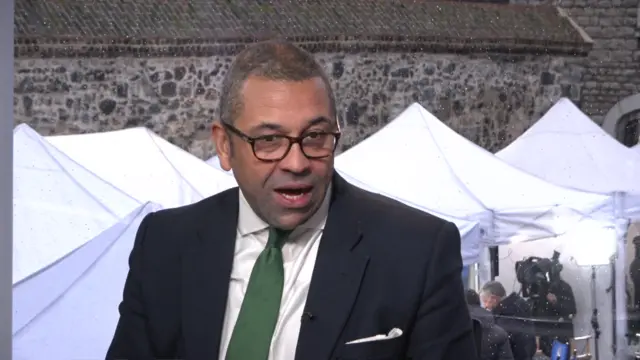
James Cleverly, the Conservative Party chairman, says the result "really vindicated" the message the party had been putting across, "which was that the British people wanted Brexit done."
He says the government will "get straight to work" in the busy period before Christmas, and it would "very quickly start the process" to get the Withdrawal Agreement Bill through Parliament.
"We will make sure all the legislative stages are done in time for us to leave the EU on 31 January.
"As soon as MPs are sworn in, we will get the Queen's Speech through and then straight into getting the Withdrawal Agreement Bill through the House of Commons...so we can leave by 31 January."
He insists Prime Minister Boris Johnson is "absolutely clear" that he will honour his commitment to voters.
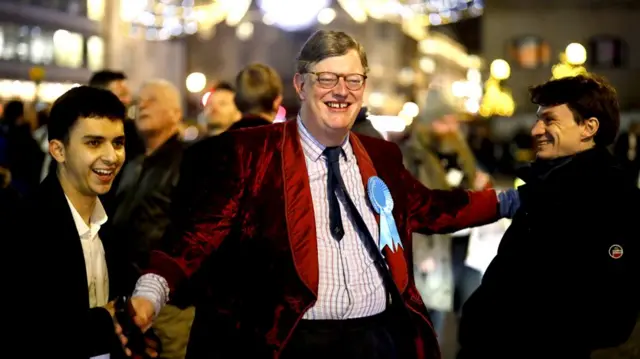 Image source, AFP
Image source, AFPA Conservative Party supporter reacts after the broadcaster's exit poll results
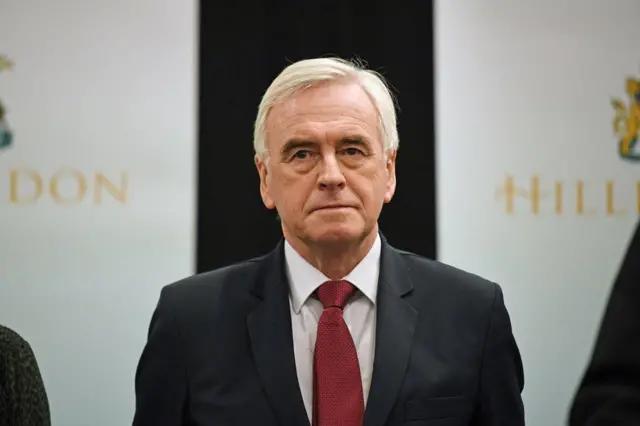 Image source, PA Media
Image source, PA MediaShadow chancellor John McDonnell stands stoically at his count in west London
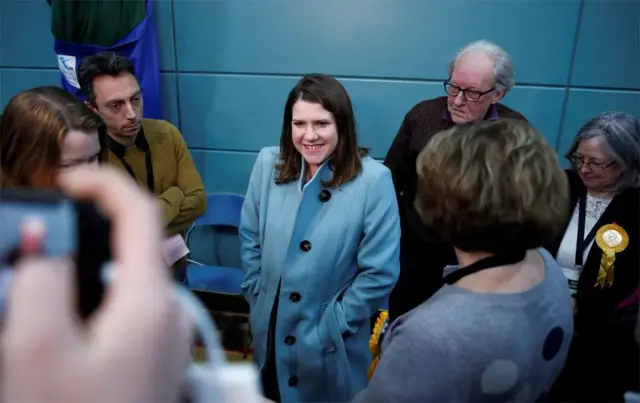 Image source, Reuters
Image source, ReutersFormer Lib Dem leader Jo Swinson awaits news of her defeat in Dunbartonshire East
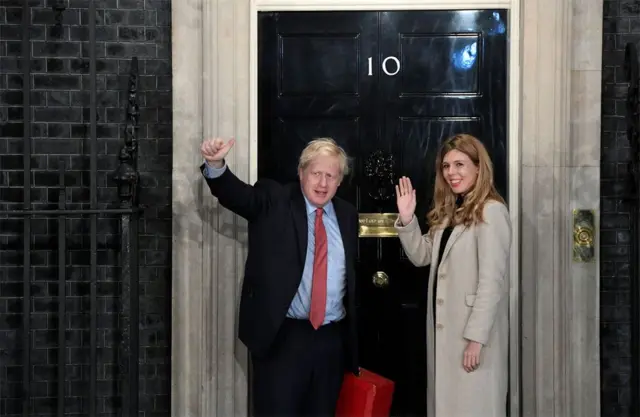 Image source, Reuters
Image source, ReutersA victorious Boris Johnson and his partner Carrie Symonds arrive back at No 10
 Chris Mason
Chris Mason
Political Correspondent
Let's take a step back.
You have to go back a generation - to 1987 - to find a victory for the Conservatives that empowers them in the way this general election has.
Yes, the Conservatives won in 1992 - but then endured a torrid time in government.
Yes, they governed from 2010 to 2015, but alongside the Liberal Democrats.
And yes, they won a majority in 2015 and were the biggest party in 2017 - but in both instances the majorities, either their own four years ago or with the DUP two years ago, weren't big enough for them to do what they wanted to do.
Now - they have the prize. What does that mean?
It means Brexit will happen, and soon.
But we don't yet know what the future relationship with our nearest neighbours will look like.
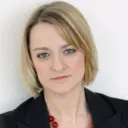 Laura Kuenssberg
Laura Kuenssberg
BBC political editor
In the short-term, of course, we’ll have the usual ceremonials today – Boris Johnson will go to the Palace to see the Queen and seek permission to form the next government.
Then I expect we’ll get the standard lectern moment in Downing Street and Mr Johnson will give a more formal address to the whole country rather than the rallying cry to party activists we heard here in central London this morning.
I think MPs will be sworn in next week as quickly as they can – a very new House of Commons taking shape.
I’m expecting the Queen’s Speech – the programme for government – to be next Thursday.
And then on Friday, crucially, the new government will be having the first reading, the first hurdle, of bringing the Brexit bill back to the Commons.
After that, my sense is they’re probably more or less going to allow a pretty exhausted, fraught Westminster village to have the holiday, come back in January, push through all the Brexit legislation and leave the EU, they hope, at the end of that month.
And then, in February/March, a big moment, big reshuffle, big reset and a big addressing of what the priorities of a post-Brexit Conservative government will be - probably for the next five years based on today’s numbers.
There might be a mini reshuffle before then – one or two changes. There’s always the possibility on these nights that they might lose ministers – Zac Goldsmith for example did lose his seat.
I think there will probably be a few nips and tucks but I do not expect there to be an all-singing, all-dancing reshuffle. This government is one that wants to tick the first priority off its list as smoothly as they possibly can - with no drama.
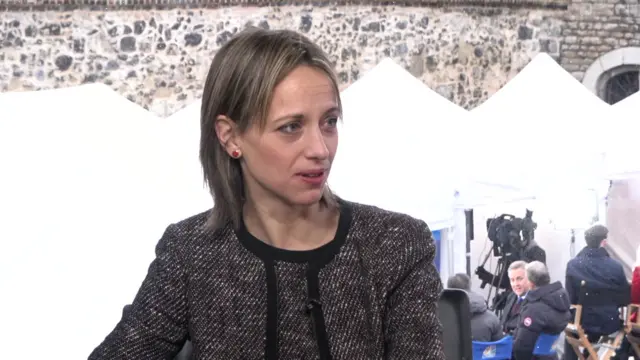
Conservative minister Helen Whately says the party is committed to delivering on its promise to voters, including those who have never voted Tory before.
She says it will deliver "both on Brexit, and getting Brexit done but also on public services, the NHS, on education."
Challenged on the impact of austerity policies on services like the NHS, Ms Whately blames the Labour party "for the mess they left us in financially back in 2010".
Questioned on how this Conservative government will improve the NHS, she says: "Now we have got our economy back on track...we are in a much stronger position economically to invest in public services and put more into the NHS as we absolutely want to do."
 BBC Radio 5 Live
BBC Radio 5 Live
Allow X content?
This article contains content provided by X. We ask for your permission before anything is loaded, as they may be using cookies and other technologies. You may want to read X’s cookie policy, external and privacy policy, external before accepting. To view this content choose ‘accept and continue’.
 BBC Radio 5 Live
BBC Radio 5 Live
Other BBC Radio 5 Live listeners are disappointed by the result.
Dave in Colchester, who voted Labour, says he is “gutted".
“I am worried what’s going to happen in the future – I feel we’ve done all we can for Remain and it’s time to admit defeat – I just hope Boris sticks to what he says about the NHS and gets us a good deal.
“[It's] just a case of regrouping this morning and moving forward… I can’t slate Corbyn at all - I’d like to thank him for everything he’s done, I think he’s even made some parts of the country believe in humanity and socialism again. What way we move forward now, I don’t know.”
Abi in Hove also voted Labour.
“I’m Remain before Labour, " she said, "I voted Labour because I wanted the Conservatives out - I am not a lifetime Labour voter.
“For me Labour needs to move to be more moderate – someone like Kier Starmer who can bring together the different sides of people who typically would be voting on the centre-left.
"I’m devastated to think I am living in a right-wing country."
Have your say: Call: 08085 909 693 | Text: 85058 | @BBC5Live, external
 BBC Radio 5 Live
BBC Radio 5 Live
Listeners to BBC Radio 5 Live have been getting in touch with their reasons for voting Conservative at this election, having previously voted for other parties.
Lisa in Potters Bar 'lent' the Conservatives her vote.
“It was a very, very difficult choice", she said. "I think there was a lot of people like me that literally got to the booth and went, OK if I want to stop this merry-go-round of stalemate I have to vote with ‘Get Brexit done’.
Andy in Milton Keynes is traditionally a Labour voter - he voted Conservative this time.
“Ultimately for me it came down to a few things that sort of added up against my vote and I really didn’t make that choice until I entered that booth and sort of looked down.
“What it boiled down to, Jeremy Corbyn didn’t inspire me in terms of leadership and I would say that the anti-Semitism scandal sort of overshadowing the party lead me to think that when he’s got actual problems to solve he stands back too much.
“Ultimately I felt like I had to travel less distance to the right of my political spectrum to meet Boris Johnson (who I believe Boris Johnson is when he doesn’t have to pander to the ERG and what he would be with a larger majority) than I had to travel left to meet Jeremy Corbyn," he says.
Listen to live coverage on BBC Sounds.
Have your say: Text 85058/ @BBC5Live, external
 BBC Radio 5 Live
BBC Radio 5 Live
Ian Lavery, chair of the Labour party and MP for Wansbeck, says the election result comes down to Brexit.
"This is a re-run of the 2016 referendum. Jeremy Corbyn, together with national conference, came forward with this wonderful manifesto and we put that manifesto to the people," he says.
"Unfortunately we couldn't break through the Brexit argument. People felt as if the Labour Party had been trying to frustrate Brexit. People thought the Labour Party was a Remain party, and that's why they decided, on this occasion, to support the Conservative Party, because of this 'Brexit means Brexit' and 'get Brexit done' issue," he says.
He insists that Jeremy Corbyn is "like any other leader in any other election" who "gets brought up on the doorstep", saying he is no different to Ed Miliband, Tony Blair or Gordon Brown.
"I really think we should have stuck to the 2017 manifesto pledge recognising the result of the 2016 referendum and I think the results would have been absolutely different," he adds.